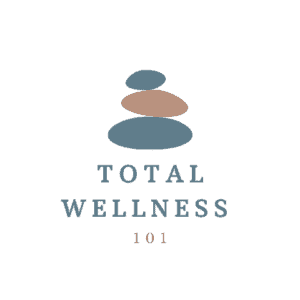Positive affirmations are a self-help method that is used to improve mood and self-esteem. They are repeated positive statements made to yourself and are used as a way to shift your beliefs and thus change your life. But do they work or are they a scam?
This article will examine positive affirmations to determine what the science says and if they really are worth trying.
What is a Positive Affirmation?
A positive affirmation is a statement that affirms the existence of something (for example, something that you want to achieve or become) and usually involves positive words. The positive words are generally used in the present tense, although they can also be in the future tense. The present tense appears to be more powerful and effective however, as it is more likely to influence your subconscious mind. A positive affirmation could be a brief statement or a complete sentence. It can be written down, read out loud, or even sung. A positive affirmation can be a reminder of a goal, a sentence that describes the goal, or a condensed version of the goal.
They are usually statements that are used to tell yourself that something is good about yourself or that something is true about yourself. Some examples of positive affirmations include: “I am happy.”, “I have a great smile.”, “I make a lot of money.” The purpose of affirmations is to improve your self-esteem or to improve your self-perception. The idea behind positive affirmations is to repeat these statements to yourself until you believe them.
Do Positive Affirmations Actually Work?
There are many who are skeptical as to the efficacy of positive affirmations. And it’s understandable because it may seem strange or awkward just listening to positive phrases or saying positive things to yourself.
To answer the question on whether positive affirmations work, yes they do, but only when done correctly and consistently with the right kind of individual.
So what does that mean? First, the way positive affirmations work is by literally creating new neural pathways. Your thoughts are indeed physical events that happen in your brain. And the more you do something, the more efficient you get because your brain strengthens those pathways.
So positive affirmations will not do you much good if it is not something that you do every day or almost every day for a while. The thoughts need to become habitual and habits are only created through consistent effort. Something to keep in mind as well is that it takes multiple positive thoughts to repair the damage of one negative one.
You also should be doing affirmations correctly to gain more benefits from them. Listening to an audio while you are distracted with something else will likely not bring about much change. However, if you write your own statements based on what you want to change, read them out loud maybe in the mirror, and feel them and imagine them being true in your mind, you are much more likely to reap the benefits.
Also, for some people, positive affirmations simply do not work as well. For some it is easier to visualize and believe something and for others it isn’t. Also, if you are clinically depressed, though affirmations can still help you some, they are likely not going to fix your negative state of mind. For that you would need more professional help or a combination of other practices to use with your affirmations.
The Science Behind Positive Affirmations
Positive affirmations began to be studied more in conjunction with the study of positivity because we know that positive people simply live longer and have less health problems. They are also happier. So we wanted to study how to increase positivity and thus increase health and happiness. A collection of studies have found a multitude of benefits of positive affirmations including but not limited to:
- Decreased health-deteriorating stress.
- Increased physical activity.
- Improved threat response.
- Reduced irritability and defensiveness.
- Improved academic performance.
- Fewer physical health symptoms when sick.
- Less stress and rumination.
One of the most popular self-help books of all time, Think and Grow Rich by Napoleon Hill, is essentially based on the power of thought and desire. One of the first practices in it is writing down exactly what you want to achieve and reading it to yourself twice a day. It is the same concept with positive affirmations. When something is present in your mind, you are more likely to bring it into reality.
Though many stories are anecdotal, nearly every successful person or self-help guru swears by the power of thought and desire to achieve what you want. So there must be something to it.
How to Write a Positive Affirmation
Though there are many apps or videos on YouTube that can give you some positive affirmations to listen to, the most effective way appears to be writing your own. This adds a personal touch and tailors it to your specific experiences and things you want to manifest in your life. So here’s how you can do it.
- Think of what you want to have or change.
- Write it out on paper or electronically in the form of a short, present-tense phrase.
- Don’t make too many statements or add multiple ideas in the individual affirmations. Focus on maybe five for example.
- Read them out loud with emotion, while visualizing them being true at least twice a day.
Positive affirmations are a great thing to try if you are looking for ways to be more positive or improve your life. It is free and without risk. And even if it doesn’t change a lot in the long-term, you at least feel positive in that moment which can be helpful on a difficult day. So give it a try and see if all of these self help books really know what they’re talking about!
Recent Posts
In the pursuit of professional success, the modern working professional often finds solace in a cup of coffee or energy drink. Caffeine, the world's most widely consumed psychoactive substance, has...
Strategies for Sales Professionals to Reduce Back Pain and Injuries
In the fast-paced world of sales, professionals often find themselves navigating through long hours, client meetings, and constant travel. Amidst the pursuit of closing deals and meeting targets, the...

